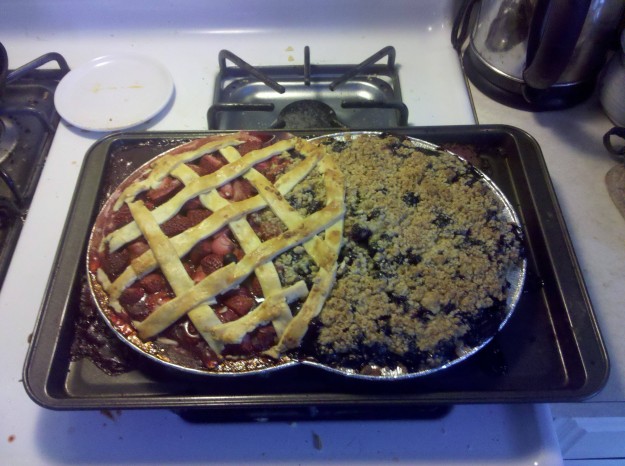My travel style tends to focus more on the experiences I have when out and about and less on the actual place where I sleep. I fall into the category of "budget traveler," which in part means that I favor hostels over hotels and rooms over resorts. I'm above the level of saving money by camping everywhere I go (although I did that for a couple weeks in New Zealand when I had a very stingy travel companion), but in general I don't look for much more than a clean room in a safe location. If I'm doing stuff all day, I really just need a comfortable place to sleep. Besides being inexpensive, hostels are great for their social aspect, especially when I'm traveling alone. At this point in my life I think I'd take a comfy hostel with a good common room over a fancy resort.
Even though accommodations don't play largely into my travel experiences, the place where I stayed during spring break turned out to be one of the best parts of the trip. There is actually a hostel up near where I wanted to go, and it was ranked by Lonely Planet as one of the best hostels in all of California. It was serendipity that the hostel was closed for repairs, which led me to booking a room at the Requa Inn in Klamath. It's an old hotel built in 1914 when the fishing industry was bigger, but now Klamath is a little town of 1,400 people and land belongs to the Yurok Indian Reservation. The Inn is now fully restored and turned into an adorable bed and breakfast.

There were so many great things about this place. First was its location, right at the mouth of the Klamath River where it empties into the Pacific. Half of the rooms, plus the dining and sitting rooms look out over the river. This was my view as I ate breakfast Tuesday morning. By Wednesday afternoon a beautiful fog had nestled itself in the trees on the hills. One of the owners told me that sometimes it gets so foggy that they can't even see the river!
This is the road the the Requa Inn is on. See the ocean at the end of the river?

The second great thing about the Requa Inn was the customer service. It's a little family business, owned by a couple, their daughter, and their son-in-law. Everyone was amazingly friendly and helpful. On my first morning I asked for hiking recommendations and one of the owners spent at least 20 minutes helping me pick out good trails and writing down directions. Employees introduced themselves and were happy to chat, but also seemed to know when guests wanted to be left alone. The decor was charming and the staff was meticulous about cleaning. Then there was the food. Breakfast options included all kinds of seasonal fruit and freshly juices, plus local breakfast meat and/or eggs, hotcakes, homemade granola, homemade yogurt, and freshly baked toast. I'm glad I stayed for three days just so I could try everything. There aren't many dining options in Klamath, so I ended up eating dinner at the Requa Inn too. I don't think of myself as a food snob, but their organic, locally produced food ingredients definitely tasted better. I'm sure the fabulous chef didn't hurt.
I also appreciated the background and social responsibility of the owners. The mother and daughter are members of the Yurok tribe and part of their goal in buying the inn was to create more jobs for people on the reservations and be role models for tribe members who might want to start small businesses. They support other local businesses through the products they use (their food is almost all local, their toiletries are from a local company, etc). The daughter wrote her MPA thesis on Indian education, so she's very active in the tribe and in the local schools. I fully support businesses that do good things and are run by good people.
My favorite thing about the Requa Inn is a little more specific to me and wouldn't necessarily sway the average person to stay there. One of the owners, the son-in-law, is from New Zealand! I guess anyone would benefit from getting to hear his awesome accent, but I was super-excited to talk to him (or "chat to him," as the Kiwis would say) about all things Godzone. Even better, he had lived in Wellington so we got to reminisce about our favorite places and all the food we can't get here in the US. The most amazing thing was that he had worked in consulting, mediating Maori claims against the crown and since I also did stuff with Maori affairs in the government it turned out that we kind of knew a couple of the same people. Such a small world!




















































